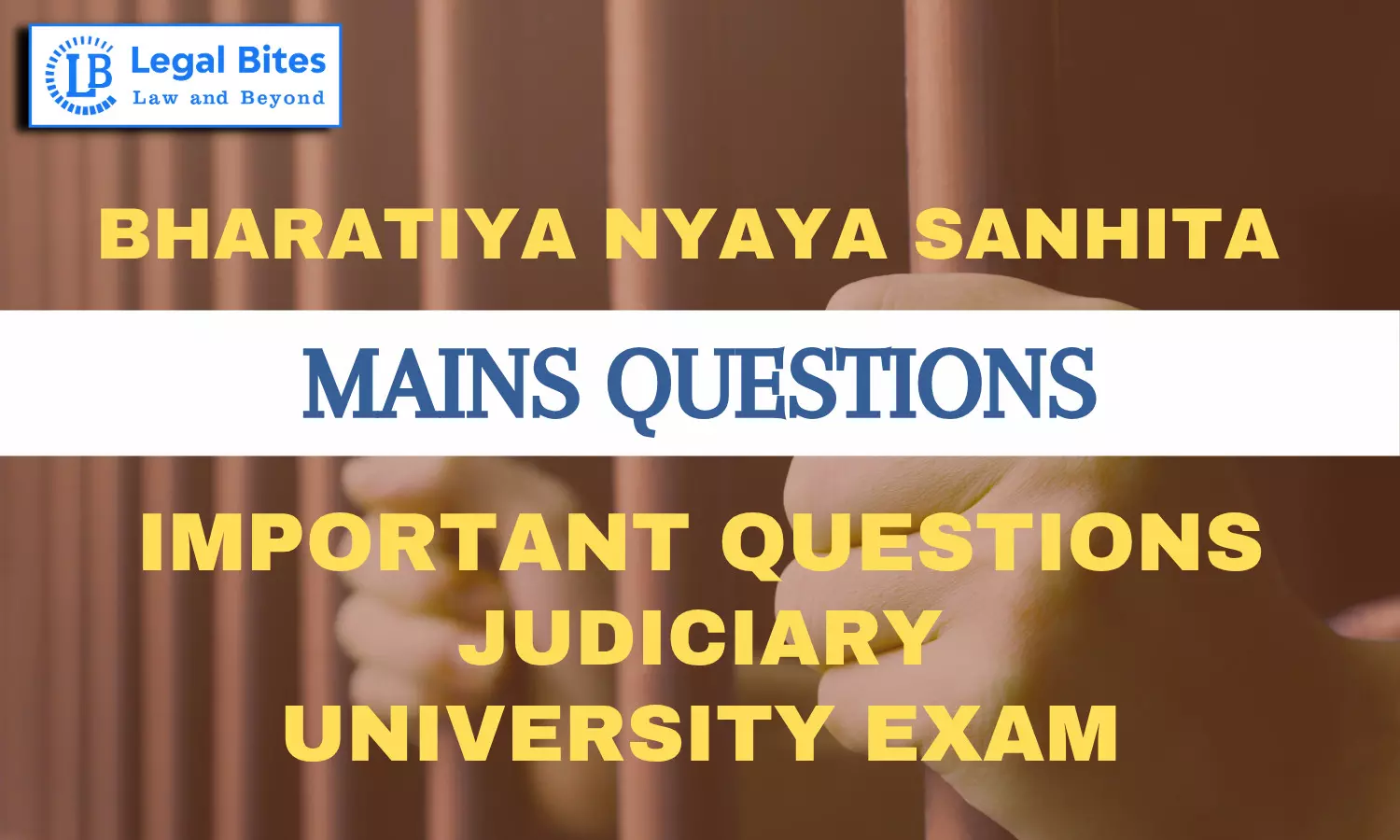BNS Mains Questions Series: Important Solved Questions for Judiciary, APO & University Exams | Part - I
Legal Bites brings to you Bharatiya Nyaya Sanhita (BNS) Mains Questions Series.

Legal Bites presents the BNS Mains Questions Series, a comprehensive initiative to help aspirants prepare effectively for Judiciary, APO, and University Exams. The questions compiled in this series are arranged section-wise in alignment with the structure of the Bharatiya Nyaya Sanhita, 2023, and include detailed answers to assist in conceptual clarity and legal articulation.
Part – I covers solved questions from the Introduction to Chapter IV (Sections 1 to 62), focusing on important themes such as territorial jurisdiction, general exceptions, the concept of mens rea, punishments, and liabilities under the Sanhita. This section provides clarity on foundational doctrines, while also analysing modern legislative reforms introduced by the BNS to replace the Indian Penal Code, 1860.
We understand that answer writing is not just a skill but a continuous process—essential for success in competitive examinations. A well-structured and legally sound answer reflects both the aspirant’s depth of understanding and their ability to apply it effectively in an exam setting.
As the exams draw near, consistent practice of these targeted questions will not only boost confidence but also sharpen analytical thinking, helping candidates develop mastery over newly introduced and amended provisions under the BNS. With Legal Bites as your guide, you can systematically strengthen your preparation for this new era of criminal law.
BNS Mains Solved Questions Series | Part – I of X
(Answers to be added soon)
Question 1
Critically examine the rationale behind the enactment of the Bharatiya Nyaya Sanhita, 2023 in place of the Indian Penal Code, 1860. What key reforms have been introduced?
Question 2
Explain the concept of mens rea under BNS. How has it been codified or altered in the new statute?
Question 3
“BNS aims at victim-centric justice rather than colonial penal control.” Discuss with relevant provisions.
Question 4
Discuss the territorial and extraterritorial application of the Bharatiya Nyaya Sanhita, 2023. How does it extend criminal liability to acts committed outside India?
Question 5
Explain the legal implications of the term ‘counterfeit’ as defined in Section 2(4). How is intention or knowledge relevant to determining counterfeiting under the law?
Question 6
Discuss the nature and kinds of punishments provided under the Bharatiya Nyaya Sanhita.
Question 7
Explain the legal provisions regarding commutation of sentence and the limitations on imposing multiple punishments for compound offences.
Question 8
Analyse the provision for solitary confinement under the BNS and discuss its constitutional validity and relevance today.
Question 9
Critically examine the defence of unsoundness of mind under Section 22. How does it align with the principles of criminal responsibility?
Question 10
Differentiate between intoxication against will (Section 23) and voluntary intoxication (Section 24). How does the law treat criminal intent in such cases?
Question 11
Discuss the circumstances under which an act done by a child between seven and twelve years of age is excused under criminal law.
Question 12
Evaluate the right of private defence of the body and property under the BNS. When does it extend to causing death?
Question 13
Define ‘abetment’ and explain the liability of an abettor when the person abetted acts with a different intention or causes a different effect.
Question 14
Distinguish between criminal conspiracy and abetment. How is conspiracy treated differently under Indian criminal law?

